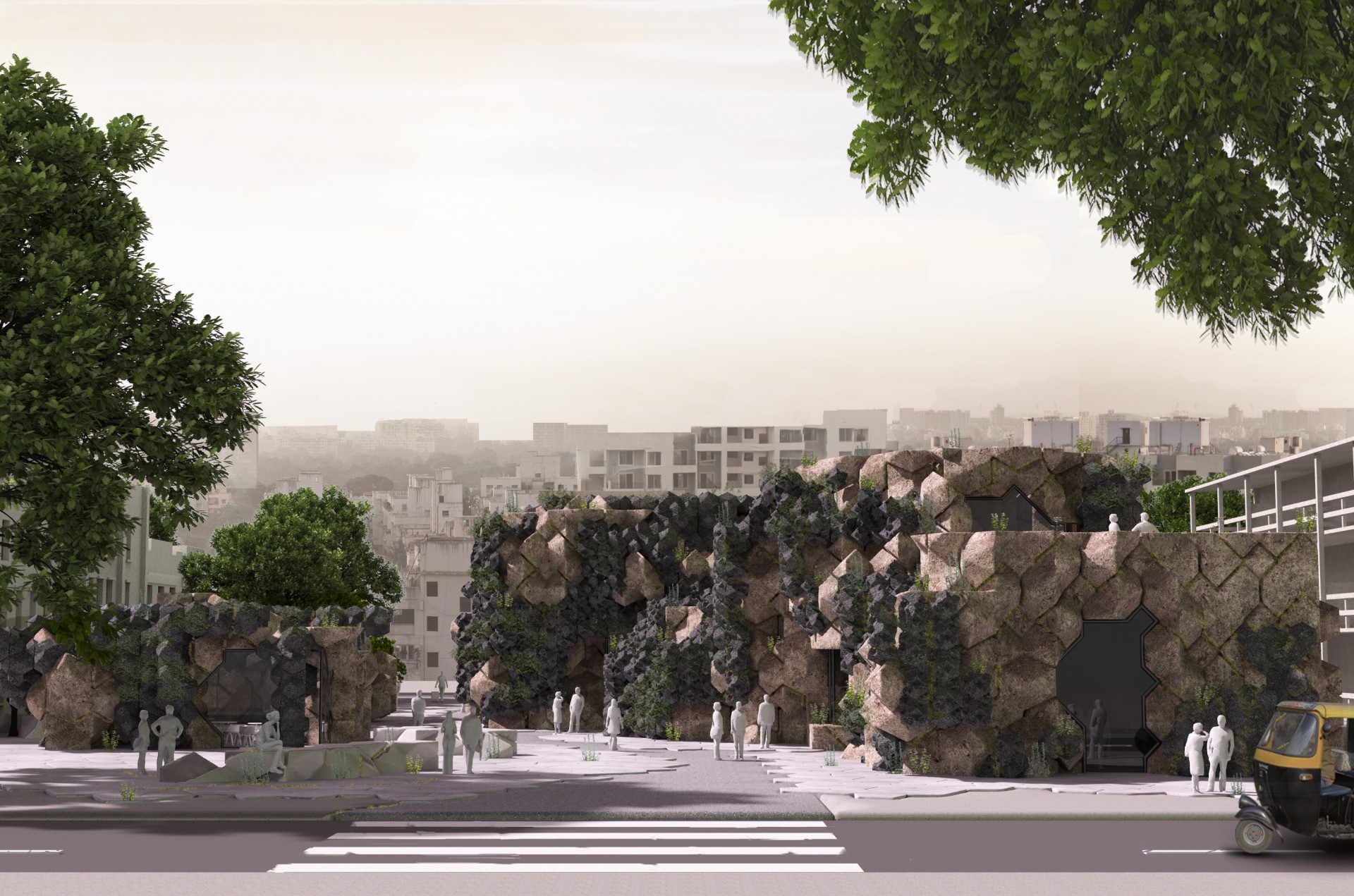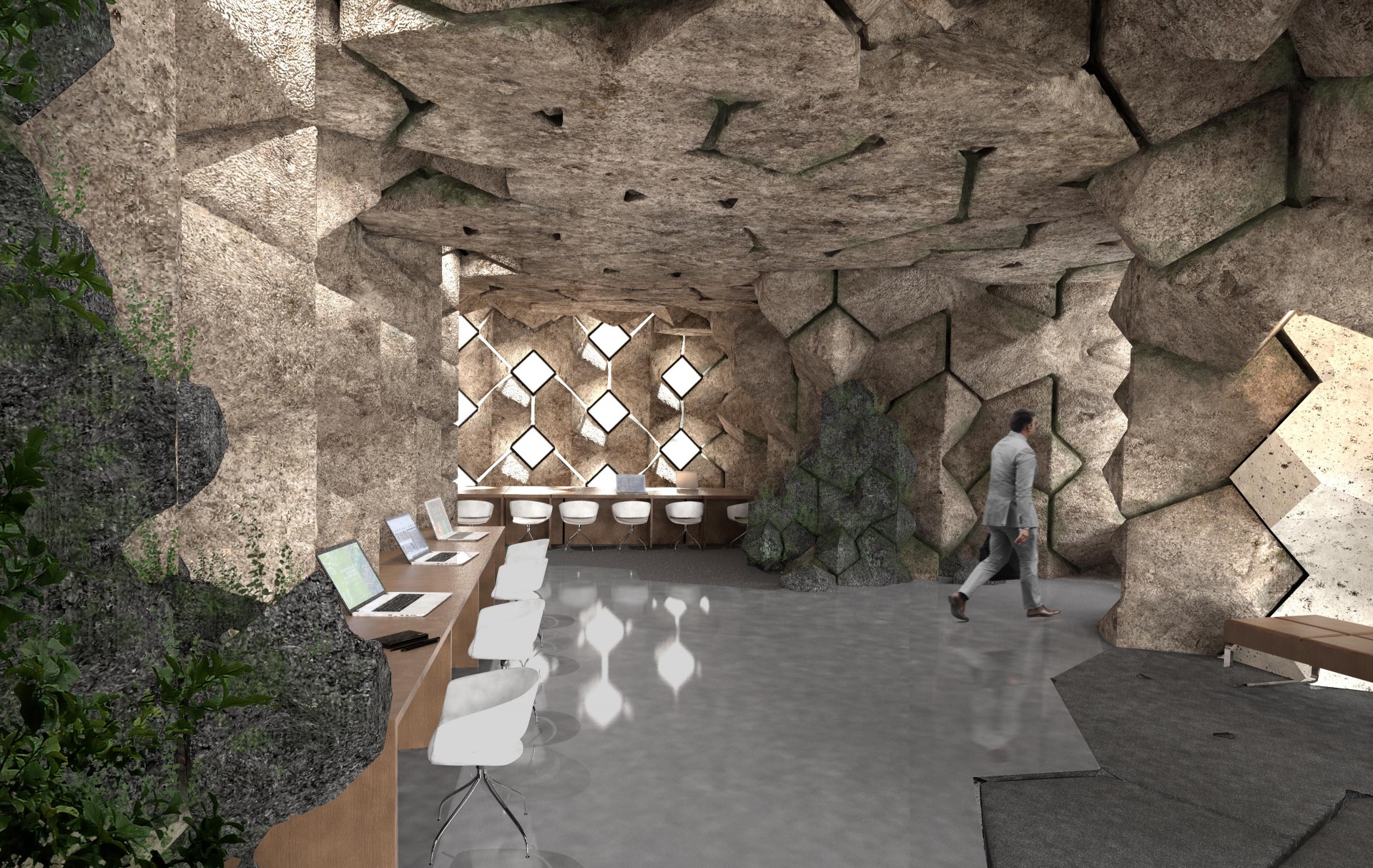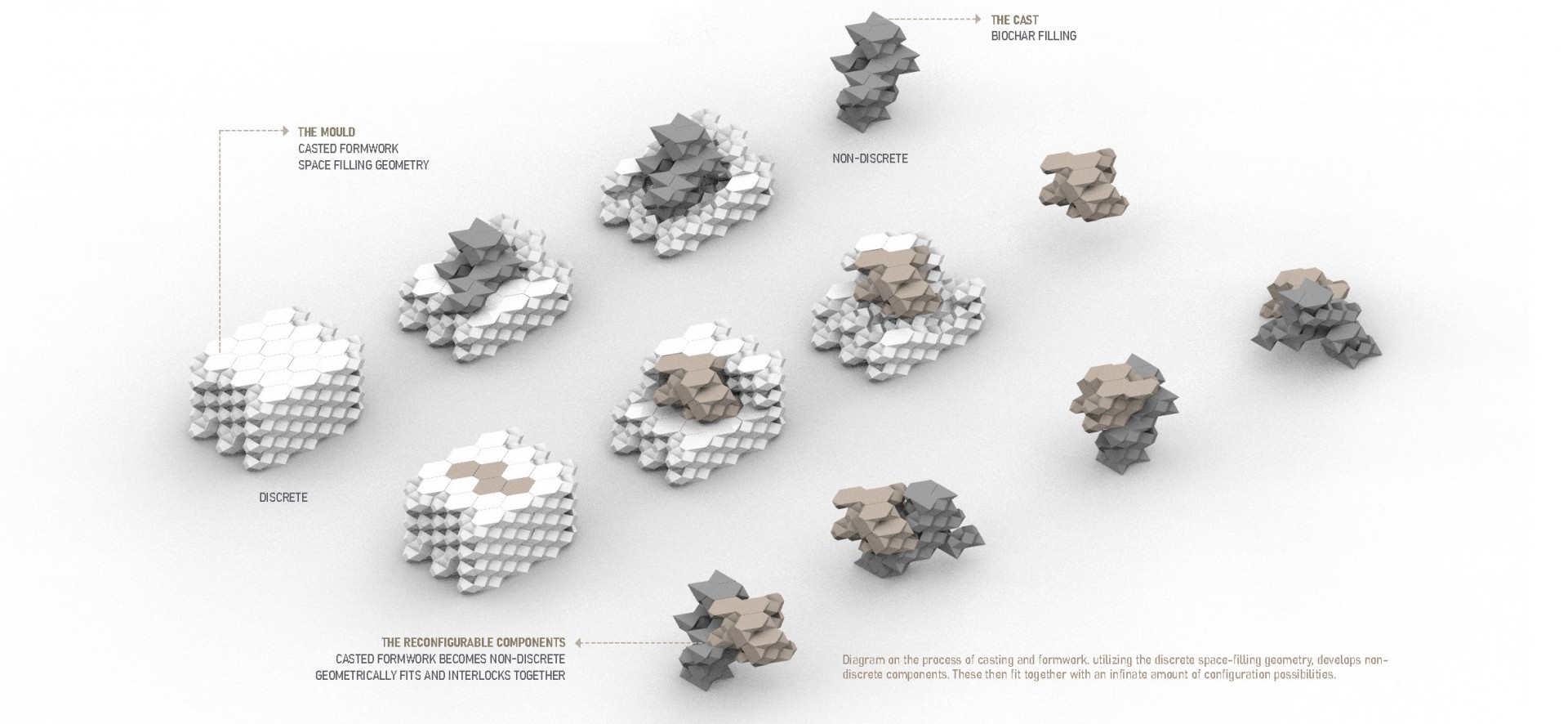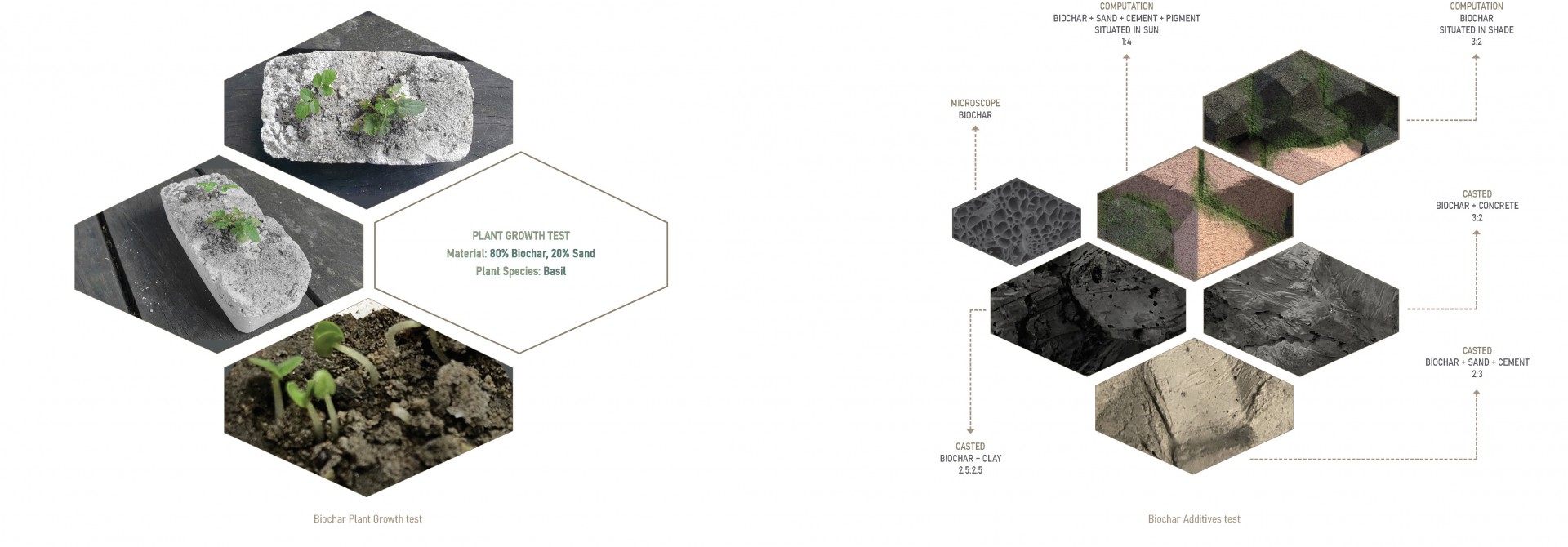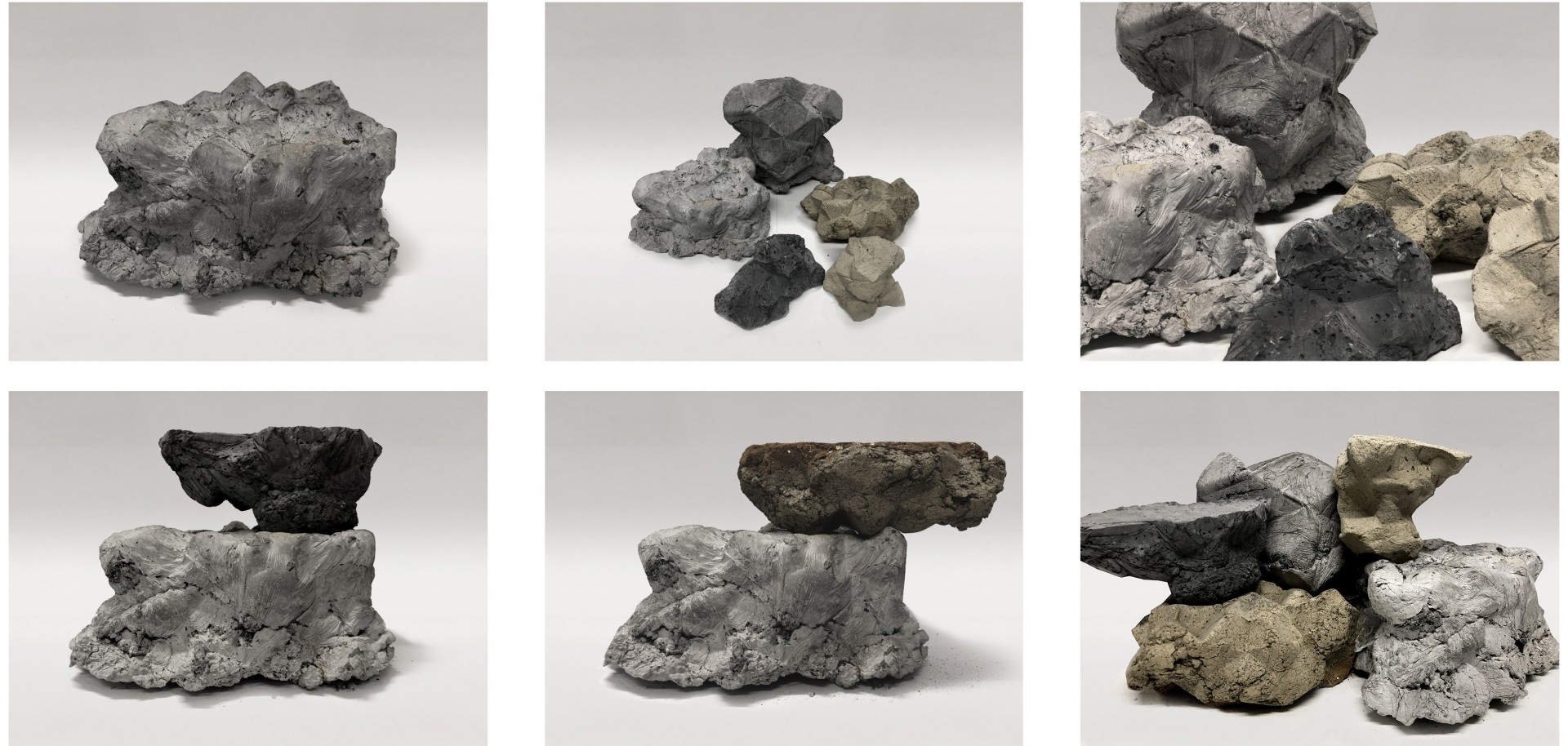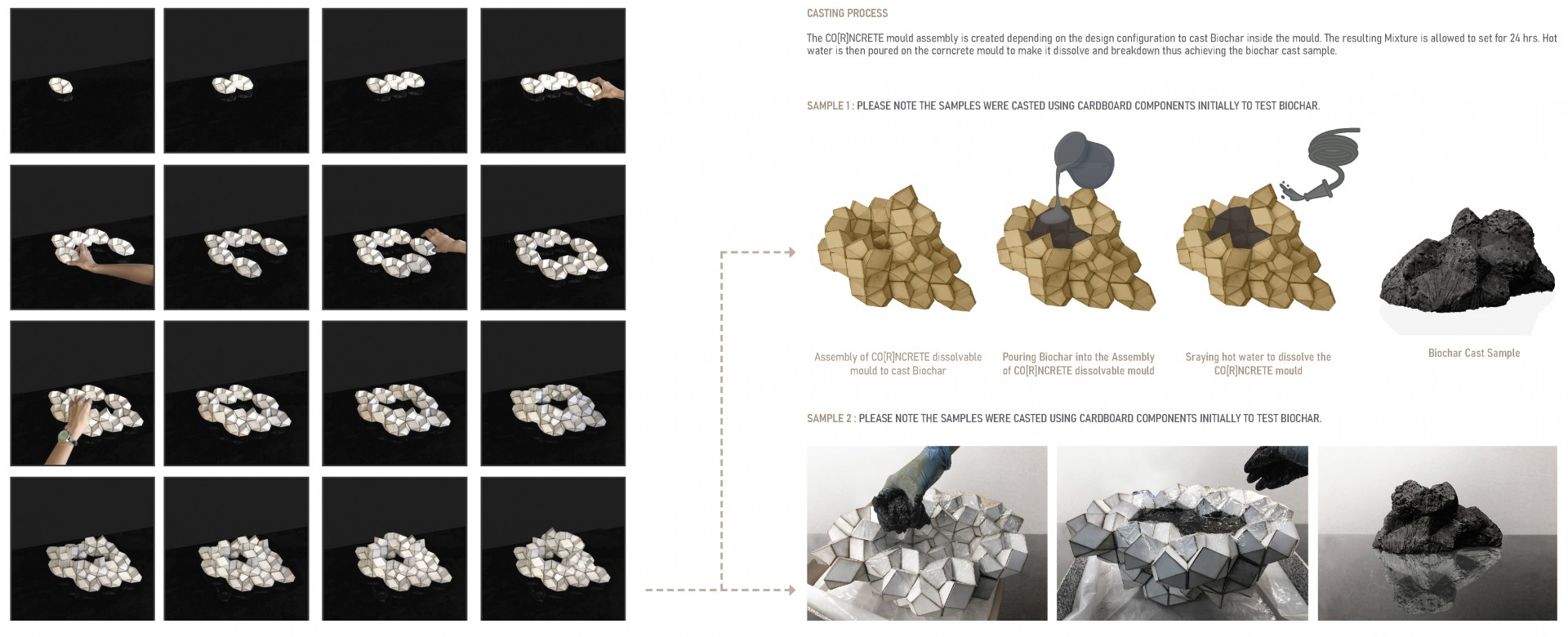Carbon Build
- Location: London, United Kingdom (UK)
- Year: 2020
- Work Type: Student
- Institute: Bartlett School of Architecture UCL, London
- Status: Conceptual
- Team Members: Kashmira Sonar, Rohan Arora, Sydney Otis, Zhijing Wu
- Instructor: Richard Beckett, Barry Wark
CarbonBuild:
CarbonBuild develops biochar as a novel material for integrating nature into architecture. Biochar is a sustainable biomaterial proposed as an alternative to brick or stone where the raw ingredients are obtained from plant matter rather than mined. It serves as a sustainable biomaterial that when integrated with other more stable, inert materials, proposes as an alternative to brick or stone. The matter in its baked form exhibits porosity, functioning as a bioreceptive material providing a carbon source for the growth of photosynthetic organisms directly on the surface simultaneous to functioning as a carbon sink. The project explores computational tools and digital fabrication through the production of reusable, reconfigurable moulds based on packing logic. Aggregations of biochar are integrated with other more stable, inert materials, driven by environmental simulations of solar gain to propose temporal, reconfigurable spaces for application in architecture.
The research explores computational approaches for the assembly of discrete, space-filling geometries (bisymmetric hendecahedron) which are used to make biochar moulds for constructing non-discrete building components, encouraging adaptable and heterogeneous assemblies. Aggregations of casted biochar elements and their tectonic logic are driven by environmental simulations of solar gain, wind, and context, using Ahmedabad, India as a case study to propose temporal spaces for a new application in architecture proposing solutions for future workspaces as a biospatial habitat in which to work. This methodology is applied when identifying the importance of adaptability for the structure through a variety of softwares that analyse the environmental context to develop optimal plant growth, temperature regulation, modifiable volumetric spaces, and control interior and exterior solar conditions.
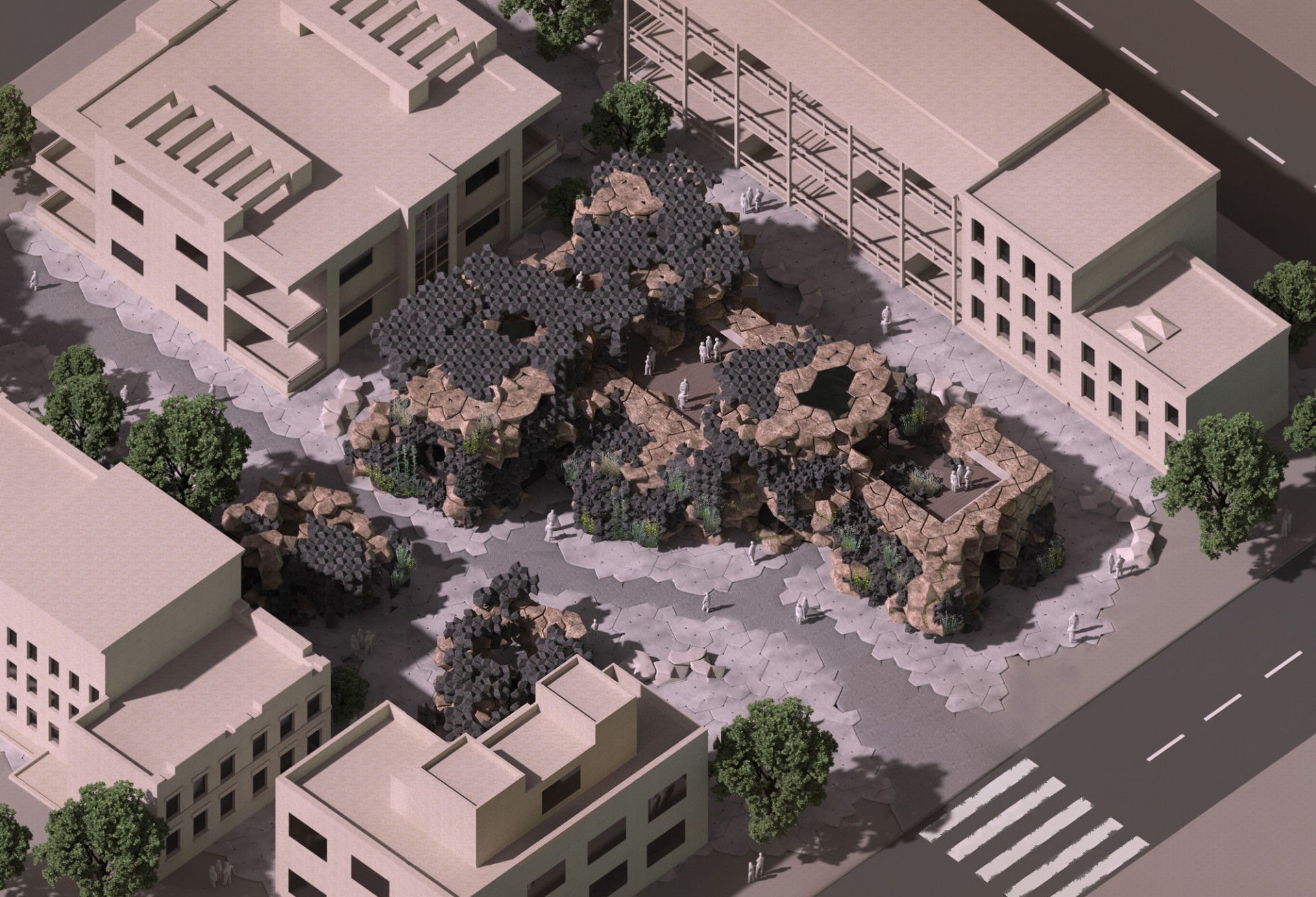
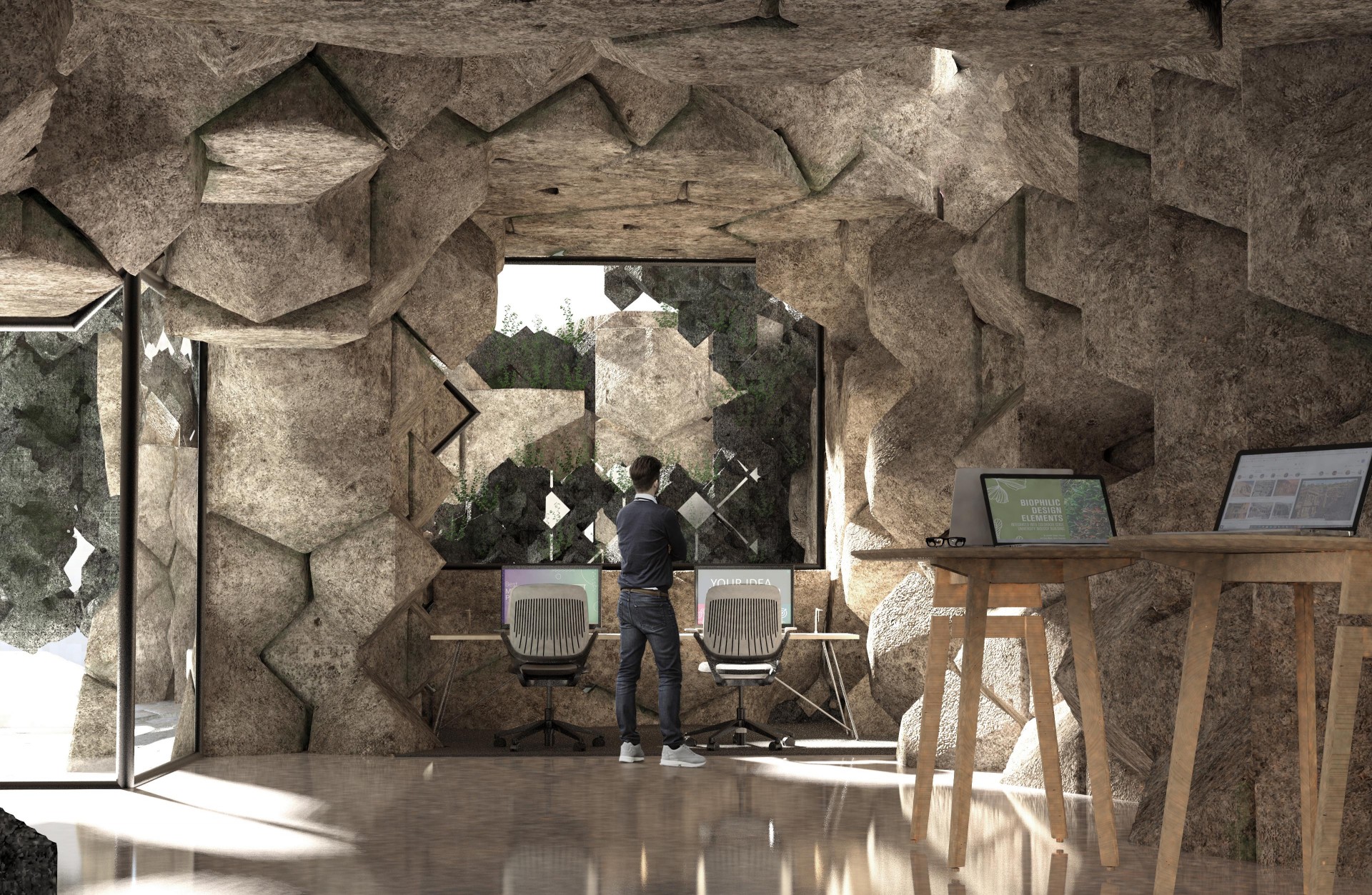
.jpg)
